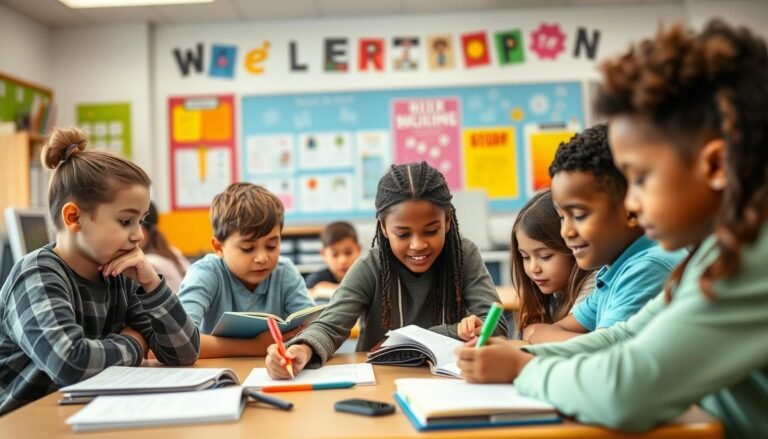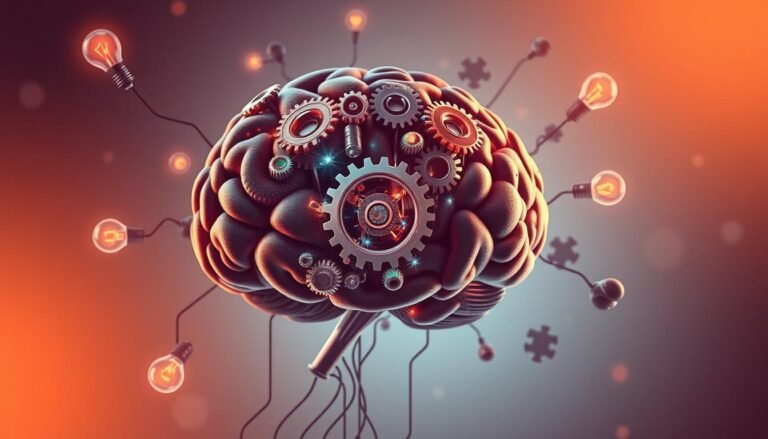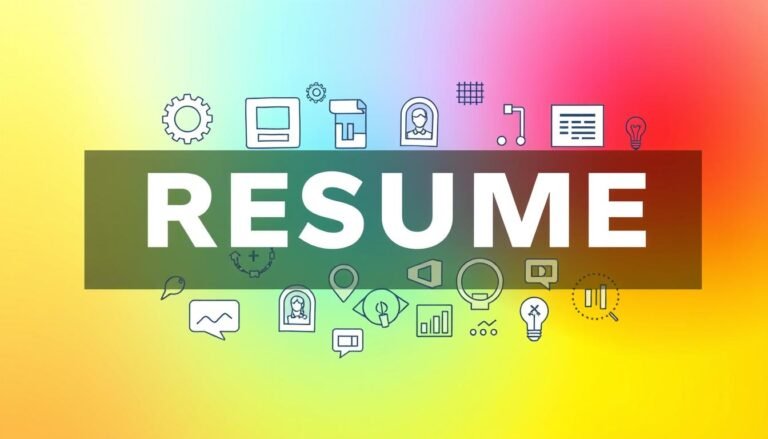Essential Lifetime Skills for Personal Growth
Ever wondered what makes successful people stand out? It’s not just luck or talent. The key is mastering essential skills for personal growth and self-improvement. These skills help us tackle challenges, grab opportunities, and keep evolving.
Lifelong learning is key to personal growth. By learning and improving these skills, we reach our full potential and adapt to new situations. Skills like effective communication and emotional intelligence shape how we interact, make decisions, and succeed.
Did you know teens who learn life skills early do better in challenges and decisions? It’s true! These skills help in school, work, and communities. For adults, improving skills shows a dedication to self-growth and opens new doors.
This article will cover the essential skills for personal growth. We’ll see why these skills are important and how to develop them. Get ready for a journey of self-discovery and ongoing improvement!
Key Takeaways
- Lifetime skills are crucial for personal and professional success
- Effective communication is a cornerstone of strong relationships
- Emotional intelligence enhances self-awareness and social interactions
- Critical thinking and problem-solving abilities are vital in today’s world
- Continuous learning and skill development lead to ongoing personal growth
- Mastering money management skills is essential for financial well-being
- Self-care and health prioritization are often overlooked but crucial life skills
Understanding the Importance of Lifetime Skills
Lifetime skills are key to growing and succeeding in life. They shape how we handle challenges and connect with others. Let’s see why these skills are important and how they help us keep learning.
Defining Lifetime Skills and Their Impact
Lifetime skills help us live well. They include skills like talking, solving problems, and managing emotions. These skills help us make strong relationships, think outside the box, and get past hurdles. They’re useful in school, work, and our communities, making our lives more rewarding.
How Lifetime Skills Contribute to Personal Growth
Building lifetime skills is crucial for growing personally. Getting enough sleep, about nine to nine and a half hours, is a good start. Exercise, even just walking, makes us happier by releasing happy chemicals. Eating a variety of foods is important too, and it doesn’t have to be hard.
Activities like journaling or meditating help us handle stress and stay well. These habits, along with good sleep and exercise, are key to feeling good.
The Role of Continuous Learning in Skill Development
Learning new things is key to getting better at skills. It’s a lifelong journey that means being open and looking at things from different angles. For teens, starting to develop skills early gets them ready for adulthood.
Adults can keep learning to deal with life’s ups and downs. By facing challenges and practicing, we can get better at talking, thinking deeply, and understanding ourselves and others.
“Learning is not attained by chance, it must be sought for with ardor and attended to with diligence.” – Abigail Adams
Effective Communication: The Cornerstone of Success
Communication skills are key to doing well in life and work. In our connected world, it’s vital to get good at talking and listening. These skills stop misunderstandings, help work together, and build trust in many places.
Studies show that bad communication can cause conflicts at work. By improving how we talk and listen, we can cut down on problems and mistakes. People who communicate well share their goals clearly, making their teams and partners more involved.
Nonverbal communication is just as crucial. Knowing how to read body language and facial expressions helps us understand messages better. This is super useful in places where different cultures change how people talk.
“The single biggest problem in communication is the illusion that it has taken place.” – George Bernard Shaw
To get better at talking to others:
- Practice active listening by focusing on the speaker’s message
- Pay attention to nonverbal cues
- Seek clarification when unsure
- Adapt your communication style to your audience
Remember, getting good at communication is a journey. By always working on these skills, you’ll be ready for any challenge. This will help you grow and succeed in all areas of life.
Emotional Intelligence and Self-Awareness
Emotional intelligence is key to growing and succeeding. It means knowing and handling our and others’ emotions. This skill helps us build strong relationships, do well at work, and reach our goals.
Recognizing and Managing Emotions
Self-awareness is the base of emotional intelligence. It’s about knowing our own feelings, strengths, and weaknesses. Research shows that 65% of those with high self-awareness can name their feelings and move past bad reactions. This skill helps us tackle challenges better and make smarter choices.
Developing Empathy and Social Skills
Empathy is a big part of emotional intelligence. It lets us see things from others’ viewpoints, solve problems, and solve conflicts. Those with strong empathy are 55% more likely to act and talk right in social situations. This leads to better relationships and a more positive vibe, even when things get tough.
Enhancing Self-Awareness for Personal Growth
Getting better at self-awareness can really help us grow. Students who share their feelings clearly are 30% more likely to know themselves better, which improves how they talk to others. People who are self-aware are also 40% more likely to speak up and stand up for themselves, knowing when they’re not being treated right.
“Self-awareness is the key to unlocking your full potential and fostering meaningful connections with others.”
By working on emotional intelligence and self-awareness, we can get better at making decisions, handling stress, and succeeding in life. These skills are key for growing personally and can make life more rewarding and balanced.
Critical Thinking and Problem-Solving Abilities
Critical thinking is key to making good decisions and solving problems. It lets us look at information objectively and make rational judgments. In today’s fast world, these skills are a must in many areas, like education and business.
Thinking critically helps us deal with complex issues and find new solutions. It means questioning what we assume, spotting patterns, and finding biases. With these skills, we can handle challenges in our personal and work lives better.
Problem-solving is closely linked with critical thinking. We need to clearly define problems, collect the right info, and think of possible solutions. By using analytical skills to check our options, we can make smart choices and put effective plans into action.
“Critical thinking allows individuals to navigate information effectively, identify misinformation, and engage in creative problem-solving.”
Getting better at critical thinking and problem-solving has many benefits:
- Improved decision-making
- Enhanced self-reflection
- Better information processing
- Increased creativity
- Stronger communication skills
At work, these skills boost productivity and innovation. They help professionals analyze market trends, manage projects well, and help the company grow. Whether you’re a CEO or a nurse, critical thinking is key in making daily decisions.
Lifetime Skills for Personal and Professional Development
Learning key skills is vital for growing personally and professionally. These skills help us handle life’s ups and downs and reach our goals.
Time Management and Productivity
Managing time well boosts productivity. By planning and controlling how we spend our time, we work smarter and do more. This skill lets us set priorities, hit deadlines, and keep a good balance between work and life.
Adaptability and Resilience
Adaptability is crucial in today’s fast-changing world. It means being able to quickly adjust to new situations. With resilience, we can recover from failures and do well in new environments.
Leadership and Teamwork
Leadership skills mean guiding and motivating others to reach shared goals. Teamwork is about working well together. Both are key for success in many areas, like the workplace or community projects.
Financial Literacy and Money Management
Knowing about finances is key to a secure future. It means understanding income, expenses, making budgets, saving for emergencies, and investing wisely.
| Skill | Impact on Personal Development | Impact on Professional Growth |
|---|---|---|
| Time Management | Improved work-life balance | Increased productivity |
| Adaptability | Better stress management | Enhanced problem-solving |
| Leadership | Increased self-confidence | Career advancement opportunities |
| Financial Literacy | Reduced financial stress | Better business decision-making |
By focusing on these skills, we can improve our personal and professional lives. This leads to ongoing growth and success.
Conclusion: Embracing Lifelong Learning for Continuous Growth
Lifelong learning is key in our fast-paced world. It’s more than just a trend; it’s crucial for staying ahead and growing continuously. This idea became popular in the 20th century with the rise of adult education.
Learning throughout life does more than just help in our careers. It makes us more employable, opens up new career paths, and gives us the skills employers want. It also brings personal satisfaction, letting us follow our interests at any age.
By adopting this mindset, we open up many opportunities. We can go for higher education, professional certifications, or take online courses and workshops. There are many ways to improve ourselves. Reflecting on what we’ve learned and sharing our knowledge helps us grow and supports a culture of ongoing improvement.
Lifelong learning benefits not just us, but also the economy. A well-educated and skilled workforce boosts innovation and competitiveness worldwide. So, let’s keep learning and growing. It’s the way to reach our full potential and succeed in a changing world.
Source Links
- Life Skills
- 20 Essential Life Skills Everyone Should Learn for Personal Growth | Studyhub
- Life Skills: Discover the 7 Essential Types You Need
- Importance of Life Skills: Taking Care of Yourself | The Jed Foundation
- The Importance of Life-Long Skills and How They Can Benefit You?
- Effective Communication: The Cornerstone of Success
- Effective Communication: A Cornerstone of Success – Kevin Guest
- 5 Key Components of Emotional Intelligence
- Self-Awareness and Emotional Intelligence for Feeling Empathy — Cultures of Dignity
- Critical Thinking & Why It’s So Important – Nichols College
- 7 steps to uplevel your critical thinking skills [2024]
- What Are Critical Thinking Skills and Why Are They Important?
- Module VII Life Skills.doc
- What Are 21st Century Skills?
- What are Life Skills? | Skills You Need
- Embracing Lifelong Learning: Importance and Examples
- How to Embrace Lifelong Learning for Continuous Growth
- Embracing Lifelong Learning: The Key to Thriving in a World of Constant Change – Get More Brain







